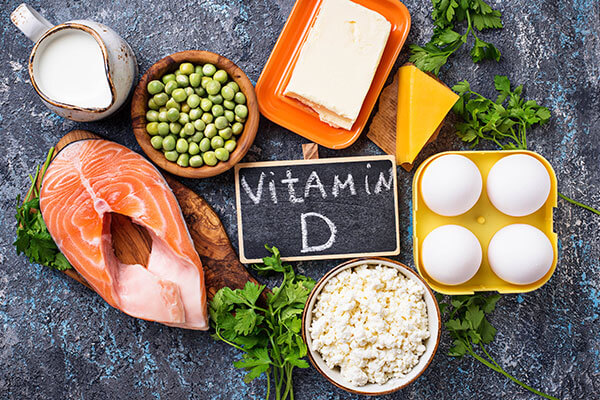Did you know that Vitamin D is a crucial component of healthy aging? According to a recent study in the journal Age and Ageing, Vitamin D deficiency may contribute to osteoporosis, muscle weakness, hip fractures, diabetes, cancer, heart disease, arthritis and poor general health in seniors.
Those over age 50 have an increased risk of Vitamin D deficiency. As people age, they lose some of their ability to synthesize vitamin D from sunlight. Seniors who are homebound are less likely to get outdoor exercise and activity. Researchers suggest that it takes up to 30 minutes of sun exposure twice a week to make a sufficient amount of vitamin D from sunlight.
Sources of Vitamin D
Vitamin D is not common in many foods, but it is very important for helping your body absorb the calcium you need to build bone strength. Vitamin D also helps fight off diseases and is important for proper nerve function. Sources include:
- Sunlight- is one of the best natural sources of vitamin D. Take an afternoon walk, or invest in a UV lamp for colder months.
- Food- Few foods contain vitamin D naturally. The best foods for vitamin D are cod liver oil, salmon, mackerel, tuna, beef liver, cheese and egg yolks.
- Vitamin D Fortified Foods- These foods supply most of the vitamin D in the American diet. Milk, breakfast cereals, and juice drinks are commonly fortified with vitamin D.
- Vitamin D Supplement- Between 2005 and 2006 the National Health and Nutrition Examination Survey found that only about one-third of Americans were getting enough Vitamin D in their diet. A recent study published in the Archives of Internal Medicine suggests that older adults can reduce their risk of bone fractures by taking an oral supplement of Vitamin D every day.
How Much Vitamin D Do You Need?
As you get older, the more you’ll need Vitamin D. According to the Food and Nutrition Board at the Institute of Medicine of The National Academies, a sufficient intake of vitamin D up until age 50 is 200 International Units (IU) for both men and women. Between ages 50 and 70 the adequate daily intake is 400 IU for men and women. After age 70 the adequate intake is 600 IU for men and women.
“The clinical manifestations of suboptimal vitamin D levels have a significant physical, psychological and financial impact on older people and society as a whole,” —Age and Ageing
Some studies have found that a supplement of 400 IU daily is adequate and effective for reducing falls and fractures in seniors. Other studies suggest that the best dose for fracture reduction is 800 IU daily, and still others have found that a dose of 800 to 1000 IU daily is best.
What to Consider for Your Elder Lacking Vitamin D
If you are a loved one or caregiver for a senior, here are some things you should know about vitamin D deficiency and supplements:
- Older people who do not take Vitamin D supplements are at higher risk for Vitamin D deficiency.
- Not all seniors have the same risk. Women are at higher risk than men. Seniors with darker complexions don’t produce vitamin D from sunlight as well as light-skinned seniors.
- Sunlight may not be enough. Depending on where you live, there is not enough sunlight to produce Vitamin D from November through February. Skin needs to be uncovered, with no sunscreen, to absorb the sun’s rays.
- Some medications, like steroids, some weight-loss drugs, some cholesterol-lowering drugs and some drugs used to control seizures, can interfere with vitamin D supplements.
- A senior’s gender, age, diet, sun exposure and medical history all need to be considered when deciding on vitamin D supplements. Talk to your health care provider about the possibility of vitamin D deficiency and the best dose for vitamin D supplements
